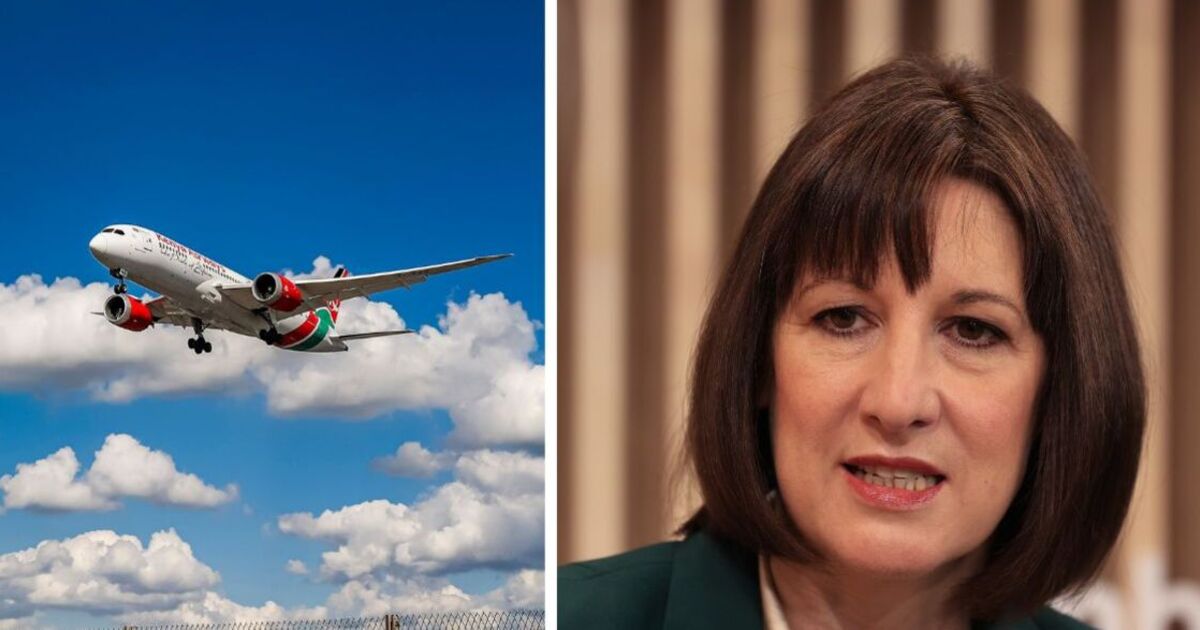Rachel Reeves’ rumoured plans to expand Heathrow Airport could trigger £40 airline fee hikes, the treasury’s own analysis has revealed.
The Chancellor reportedly wants to approve a new runway at Heathrow to boost the number of flights using so-called sustainable aviation fuel.
However, experts have warned that the lower-carbon fuel could be costly. In fact, the Treasury’s own cost-benefit analysis seen by The Guardian appears to back that up.
It shows the cost of a single economy airline fare using sustainable fuels could soar by £37.80 by 2040.
Ticket prices would go up across the board, with frequent flyers and those in first or business class being hit with the same increase as those flying economy.
The Treasury analysis adds that up to 75% of the added costs of aviation fuel would be passed on directly to customers.
Officials drawing up the document wrote: “Ticket prices do not reflect the full social cost of flying and are not sufficiently incentivising the uptake of decarbonisation solutions such as SAF.”
It comes as Labour pushes for growth while scrambling to hit its net zero targets simultaneously.
Ms Reeves has faced major backlash from several Labour figures over her Heathrow runway plans. Many critics oppose an expansion on the grounds that it would harm the environment.
For instance, London Mayor Sadiq Khan has long opposed airport expansion around the capital, citing a negative impact on air quality, noise, and London’s ability to reach net zero by 2030.
Prime Minister Sir Keir Starmer, Energy Secretary Ed Miliband, and other cabinet members have also voted against an expansion of Heathrow while in opposition.
At a Bloomberg event at the World Economic Forum in Davos, Switzerland, the Chancellor was challenged on whether the Heathrow expansion would cause problems with her opponents.
She said: “This was the problem with the last government – that there was always somebody that said: ‘Oh yes, of course we want to grow the economy but we don’t like that investment, we don’t like that wind farm, we don’t like those pylons, we don’t like that airport, we don’t want that housing near us’.
“But the answer can’t always be ‘no’ ,and that’s been the problem in Britain for a long time, that when there was a choice between something that would grow the economy and anything else, anything else always won.”
Heathrow’s third runway project secured parliamentary approval in June 2018 but has been delayed by legal challenges over the environmental impact, and the coronavirus pandemic.
Planes currently use highly polluting kerosene as jet fuel. However, sustainable fuels – made from cooking oil and animal waste alongside traditional jet fuel – may be able to reduce emissions by up to 80%.
However, critics say any Heathrow expansion would likely still have harmful environmental impacts.
Alethea Warrington, head of aviation at climate charity Possible, said: “Approving airport expansions would be a catastrophic misstep for a Government which claims to be a climate leader.
“This huge increase in emissions won’t help our economy, and would just encourage the small group of frequent flyers who take most of the flights, further worsening the UK’s huge tourism deficit.”

